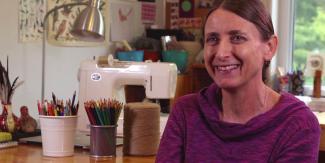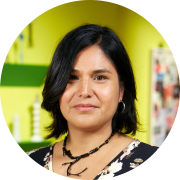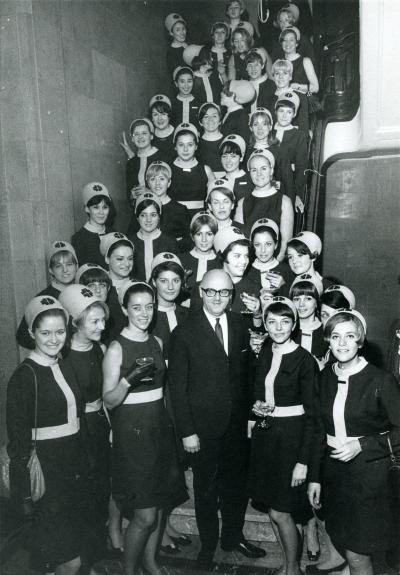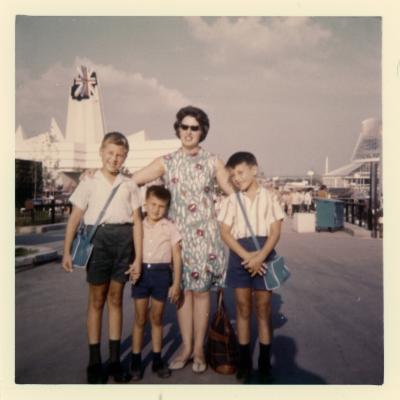For LatinArte’s project Vues transversales. Panorama de la scène artistique latino-québécoise (Across Disciplines: A Panorama of Latin American Art in Quebec), ten artists spoke about their practice and about Montréal. Here is María Ezcurra’s story.
Clothes are a central aspect of my creative process, becoming a site of exchange and a form to negotiate a sense of self in relation to the world, with others, and with ourselves.
— María Ezcurra
María Ezcurra is an Argentinian-Mexican-Canadian multidisciplinary artist and educator. For over two decades, she has been engaging with critical reflection around the deconstruction of social and collective identities. Her work incorporates collaborative artistic practices and arts education centred around participation and inclusion. Her areas of research include gender-based violence, immigration, and the construction of identity.
Ezcurra settled in Montréal in 2010. In 2019, she was awarded the Prix de la Diversité en Arts Visuels by the Conseil des arts de Montréal. She obtained a PhD in Art Education at Concordia University and was Artist in Residence at McGill’s Faculty of Education, where she currently teaches. Ezcurra also works as an art facilitator at the McGill Art Hive Initiative and for other community organizations.
Ezcurra has participated in public events and exhibitions around the world. Her art practice explores the traces of narrative memory inherent in physical materials and particularly found objects. She is especially interested in our complex relationships with the everyday objects around us and how they are linked to gender roles and social identities.
Materializing uncomfortable truths
María Ezcurra

Many of María Ezcurra’s artworks call attention to violence against the female body. In her 2009 installation La procesión va por dentro (The Procession Goes Inside), she highlights the social violence inflicted on women every day, and shows how aesthetic norms shaped by gender identity and physical self-perception can lead to acts of bodily manipulation and self-harm. Her installation In your shoes / En tus zapatos / Dans tes souliers (2016) looks at these same themes, and Ezcurra deconstructs the restrictions and standards imposed on the bodies of women, who are coerced into following the dictates of the fashion industry and patriarchal society.
To deconstruct these ideas, María Ezcurra uses mediums like sculpture and performance, drawing on a full range of material and aesthetic resources. Like an archaeologist unearthing everyday objects, she searches for traces of social subjectivity and the personal stories they hold. For example, pieces of clothing worn by a body at a precise moment and in a precise space are broken down and transcend their material state, producing a whimsical constellation of signs and tension for the viewer to interpret. An explosion of meaning captures the intricacies of human relationships: a hybrid archipelago of multiple identities and social interactions.
In her desire to push the boundaries of a system of representation, Ezcurra undresses and strips bare the uneven architecture of power, bonds of belonging, and issues of gender and subjugation that normalize our societal structures. María Ezcurra’s art practice articulates a critical strategy of representation and applies it to the symbolic objects and actions woven into our culture.
ARGONZA, Mariza Rosales (dir.). Vues transversales. Panorama de la scène artistique latino-québécoise, Montréal, Éditions du CIDIHCA, 2018, 300 p.



